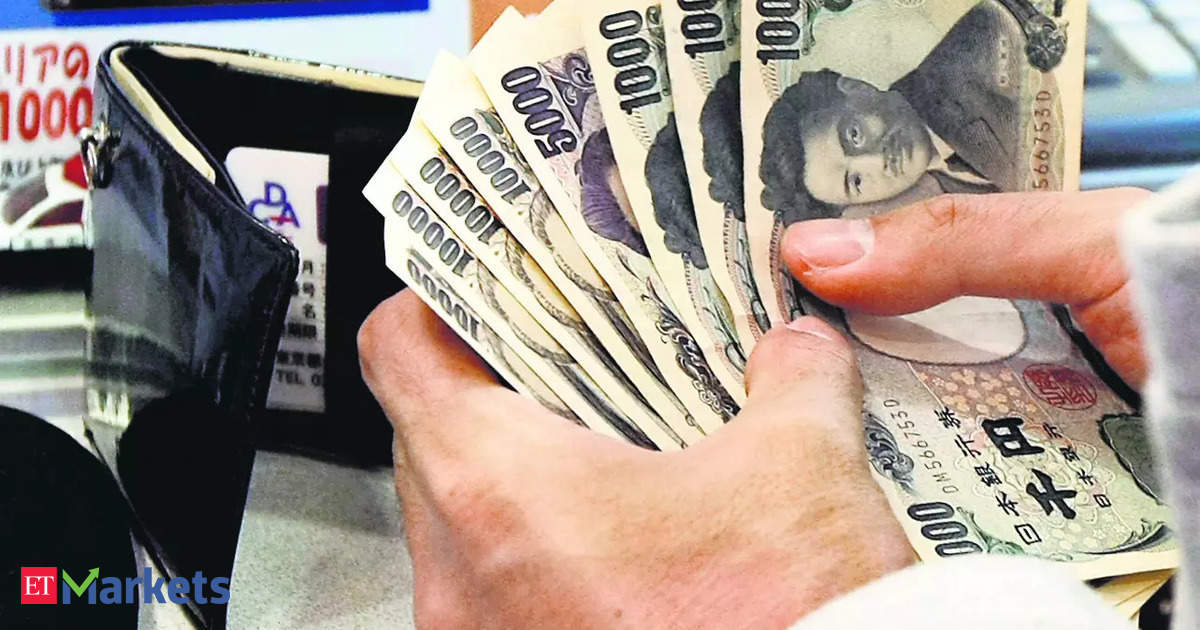Is Japanese Yen a canary in the coalmine? What it means for Bitcoin
However, this policy decision has come at a tremendous opportunity cost - the yen has been savaged on the foreign exchange markets. As the U.S. Federal Reserve and other major have hiked rates to combat , the policy divergence has made Japanese assets increasingly unattractive to global capital flows chasing higher yield. Last month's meagre quarter-point rate rise by the BOJ, the first hike since 2007, proved a futile gesture to halt the yen's freefall. With U.S. monetary policymakers now signalling "higher for longer" interest rates, the pressure on the yen may only intensify from here.
So why does this matter beyond the borders of Japan? A persistently weak yen increases the risk of imported inflation proliferating through the world economy. As the yen depreciates, Japanese exports become relatively cheaper on global markets. This could spur a new wave of price pressures reverberating from one of the world's largest economies.
There are also profound risks if the yen's slide transforms into a cascading rout. Years of low rates have prompted Japanese investors to engage in an enormous "carry trade", borrowing in yen to invest abroad in higher-yielding assets. Severe could force position unwinds and margin calls, unleashing violent cross-asset volatility. Given these looming threats, some have questioned if the yen's travails could trigger a dreaded "Yen Crisis” event that forces policymakers into extreme measures like or sharply higher inflation to devalue away Japan's massive obligations.
Historically, such monetary denouements have often provided fertile ground for alternative assets like to flourish as a store of value outside the traditional fiat financial system. Unlike many predictions that was merely a "low interest rate phenomenon", the recent resilience with yields back near highs underscores its role as a way to sidestep the stealthy fiat debasement that has become the only tool left for central planners to keep the system intact.
With bond yields surging again and the traditional fiat financial system straining under its own contradictions, exemplified by the yen's dramatic 34-year low versus the dollar, the scene may be set for central banks to once again weaken the dollar to relieve pressures. This could get unruly until a new liquidity injection arrives, potentially providing fuel for Bitcoin to break out to $100,000 and beyond, amplified by the effects of the 2024 halving and new spot Bitcoin ETFs in Hong Kong.
Moreover, there are increasing signs that more influential voices are awakening to Bitcoin's merits as a profound paradigm shift amid the imploding credibility of fiat and failure of policy norms. Prominent business leaders, investors and millions of ordinary people have been gradually embracing Bitcoin publicly and privately. Based on a survey conducted by UK-based Nickel Digital Asset Management, it was found that 18% respondents expect a “dramatic increase” in institutional investment. The survey also shows that 63% respondents expect the halving to lead to an increase in digital asset fund launches amid more competition for investors. As the once-respected institutions of government and finance become mired in dysfunction and inaction, Bitcoin is emerging as a beacon of hope for those craving truth and order amid the chaos. Bitcoin represents a movement gathering steam as the fiat system's flaws grow more glaring by the day. While often dismissed as a fringe novelty, Bitcoin's first-principles monetary properties of immutable scarcity, decentralisation and transparency are providing a coherent alternative to a world drowning in debasement , obfuscation and misallocated credit.
The yen's distress may be just the opening salvo in the latest chapter of a global monetary climate approaching a torrid inflection point. As this unfolds, Bitcoin's anti-fragile network-based liquidity could prove indispensable amid another cycle of desperate policies failing to sustainably rectify profound structural imbalances built up over decades of easy money madness.
The canary is chirping ominously. For those attentive to its calls, making decisive preparations could pay enormous dividends as the yen debacle potentially metastasizes into a broader monetary event catalysing the next paradigm shift.
(The author is Vice President, )
Source: Forex-Markets-Economic Times
